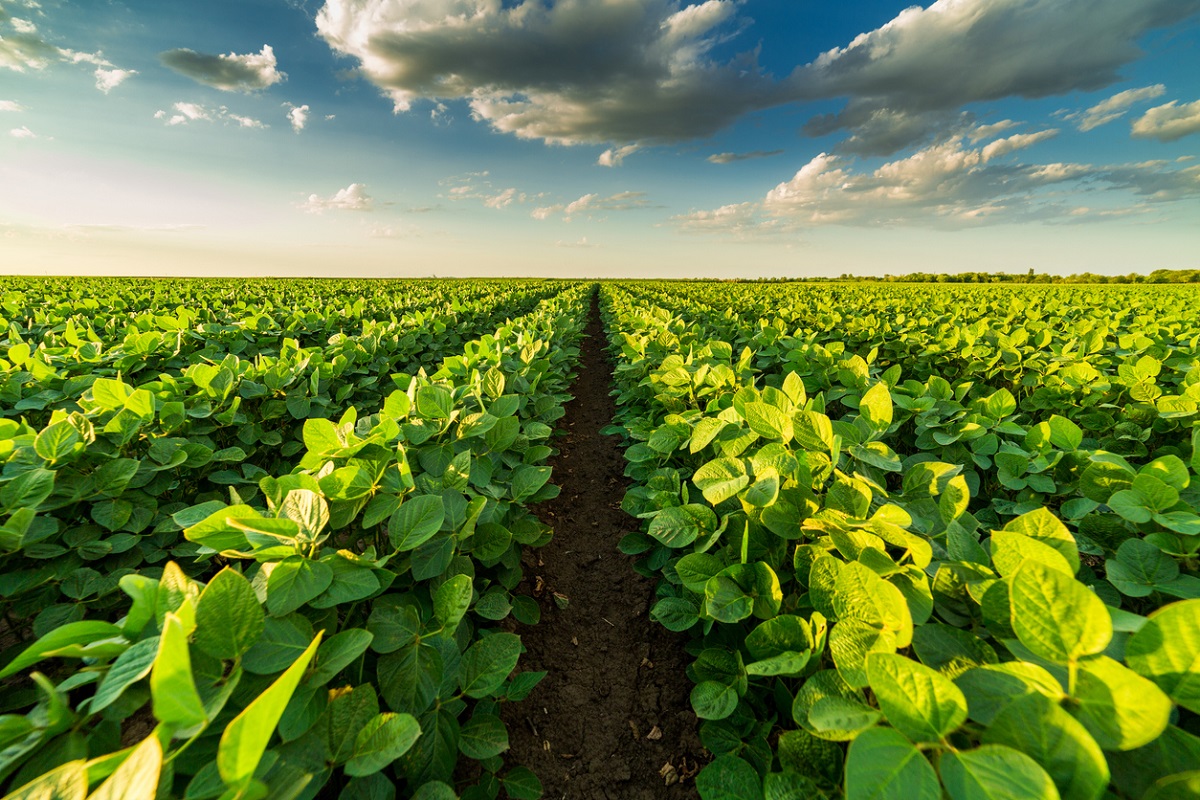
Drought-Tolerant Soybean Performs Better At Major Plant Stages, Study
October 27, 2021| |
Most studies on drought-tolerant genetically modified (GM) plants are done to document how such tolerance occurs during the plants' vegetative stage. However, a team of scientists decided to broaden their study and observe drought tolerance in GM soybean plants at seedling, vegetative and reproductive phases. Results showed that the GM soybean plants performed better during all stages due to the higher expression levels of the cisgene and drought-induced genes.
Soybeans expressing the transcriptor factor Dehydration-Responsive Element Binding Proteins 2 (DREB2), which act as regulator of drought responses, were tested in greenhouse conditions, analyzed for gene expression and yield components, and kept for seed generation progress. The GM soybeans were observed to have kept growing in osmotic treatment during germination and showed better performance for physiological and growth parameters, suggesting an improved tolerance to drought at both seedling and vegetative stages. There was also a trend in higher yield compounds during the reproductive period.
The researchers recommended additional experiments in field conditions to further study the characterization of the GM soybean lines to gather more information about their responses under water limiting conditions in the actual field environment.
Read more from Agronomy Science and Biotechnology.
| |
You might also like:
- Genetically Engineered Soybeans Produce Cow-less Cheese
- Gene to Make Plants Heat-Tolerant in Rising Temperatures Gets Patent
- Scientists Boost Recombinant Protein Production in Soybean Seeds
Biotech Updates is a weekly newsletter of ISAAA, a not-for-profit organization. It is distributed for free to over 22,000 subscribers worldwide to inform them about the key developments in biosciences, especially in biotechnology. Your support will help us in our mission to feed the world with knowledge. You can help by donating as little as $10.
-
See more articles:
-
News from Around the World
- FAO Launches World Map of Salt-Affected Soils
- Global Seed Conference on Green Development of Seed Industries
- Experts Highlight Importance of Coordinated GM Seed Policies in African Region
- UC Riverside Scientists Figure Out How to Switch Plant Response to Light
- Study Identifies Proteins that Support Photosynthesis in Iron-Deficient Plants
- University of Georgia Reports Plant-based Jet Fuel could Reduce Emissions by 68%
- 4th Asian Short Course on Agri-biotech, Biosafety Regulation, and Communication (ASCA2021)
- Research Shows Plants Can Prepare for Insect Attacks
-
Research Highlights
- Scientists Use Mix Methods To Cut Breeding Time by One Generation
- Drought-Tolerant Soybean Performs Better At Major Plant Stages, Study
-
Plant
- Repair-seq Boosts Prospects for Gene Editing Technology
-
Health
- Strategies for Communicating with People Who Are Not Vaccinated to Build Confidence in COVID-19 Vaccines
-
Read the latest: - Biotech Updates (December 10, 2025)
- Gene Editing Supplement (December 17, 2025)
- Gene Drive Supplement (February 22, 2023)
-
Subscribe to BU: - Share
- Tweet

